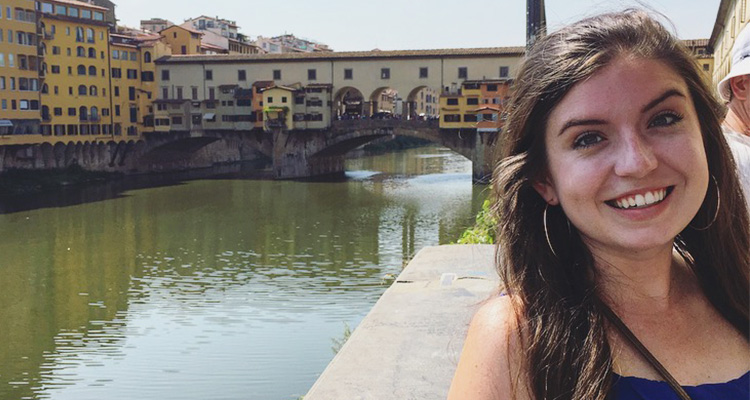 Editor’s note: Three women who hail from Wheeling — Jordan Miller, Karen Laska, Morgan Harris — have been awarded Fulbright scholarships. Weelunk writer Ryan Norman corresponded with them amid their preparations for travel and research and got a glimpse of how they’ve each arrived at this honor. In the conversations with them, you’ll find a young girl imploring house guests to read to her, you’ll learn what Zimna Wojna means, and you’ll hear about a winner of the Karl Popper Prize for Global and National Affairs. Today, meet Karen Laska.
Editor’s note: Three women who hail from Wheeling — Jordan Miller, Karen Laska, Morgan Harris — have been awarded Fulbright scholarships. Weelunk writer Ryan Norman corresponded with them amid their preparations for travel and research and got a glimpse of how they’ve each arrived at this honor. In the conversations with them, you’ll find a young girl imploring house guests to read to her, you’ll learn what Zimna Wojna means, and you’ll hear about a winner of the Karl Popper Prize for Global and National Affairs. Today, meet Karen Laska.
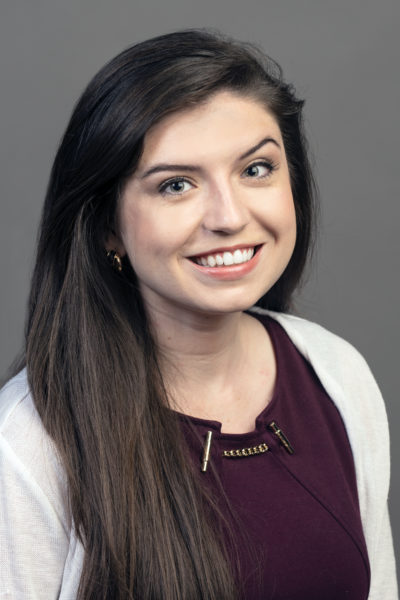
In 2017, she was awarded a Boren Scholarship, which is a nationally competitive scholarship awarding funds to undergraduates to study less commonly taught languages in regions critical to U.S. national security interests. She was awarded a Boren to study Polish for a year at Jagiellonian University in Krakow, Poland, and in exchange for the funding, she will work for the federal government for a year.
At WVU, she was inducted into the Order of Augusta and Phi Beta Kappa, as well as being named the Outstanding Senior for International Studies, a Bucklew Scholar and a three-time Eberly Scholar.
While at WVU, she was a member of WVU UNICEF Club, WVU Oxfam, WVU Russian and Eastern European Club, Pi Delta Phi French Honorary and Mortar Board. She was a member of WVU’s 2019 Schuman Challenge team, which presented a foreign policy proposal at a competition hosted by the Delegation of the European Union to the U.S.; and she represented WVU at Model United Nations conferences in Washington D.C., New York City and the Netherlands.
Karen embarks on her Fulbright adventure on Sept. 5.
What follows is writer Ryan Norman’s Q&A with Karen.
Ryan: Do you remember a moment when you realized that you loved school?
Karen: I don’t think I had an exact moment where I knew school was my thing. I have had a number of very influential teachers and professors throughout my academic career who have encouraged me to pursue my interests and instilled in me the confidence to apply for a variety of opportunities. I have always loved learning, and I have enjoyed the way each new step in my academic career has come with new challenges and opportunities to expand my horizons.
My time as a member of the Wheeling Park Speech and Debate Team was an important part of growing my confidence in my abilities and developing skills for my future career. I competed in extemporaneous speaking, which is a limited preparation event where you have 30 minutes to write an outline using news articles you’ve collected before the speech tournament and then deliver a seven-minute speech answering a domestic or foreign policy question. It was difficult at the beginning, but it later became something that I really enjoyed.
I was able to be successful at speech tournaments, and I realized I might want my foreign policy career to involve some level of public speaking. The skills I gained as an “extemper” have definitely helped me in every academic and professional setting so far, and the confidence that came from having to rely on myself and my abilities has encouraged me to go after opportunities like the Fulbright.
Ryan: Have you always been on the path that the Fulbright will be advancing? Were you ever interested in something totally different?
Karen: I have pretty much always known that I wanted to work in foreign affairs. My interest in experiencing and understanding the world began very early because I have an international family background. My mother is from Ireland, and my father is from Poland, and our whole extended family is overseas, so I have been traveling to visit them since I was a child.
Throughout my early education, I always enjoyed subjects like geography and history, and I knew I would want to pursue a similar major upon entering university. I have loved reading since I was very young, which has really influenced my love of words and the English language. I never really pursued English as a formal part of my university degree, but it became important when I began teaching English and working with speakers learning English as their second language.
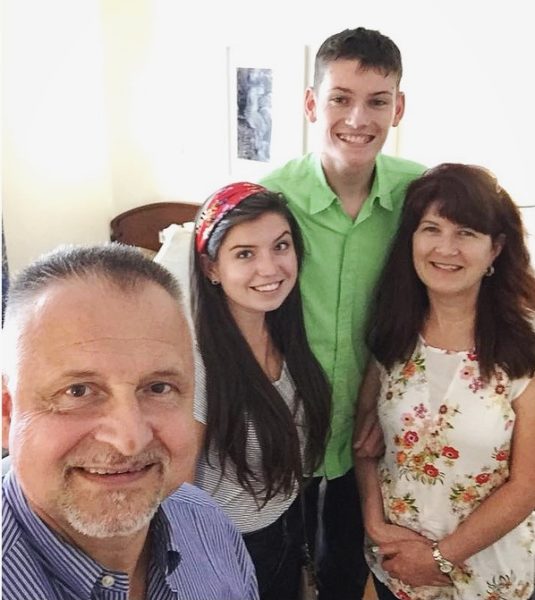
I entered WVU with an international studies major and have been fortunate enough to have had a variety of excellent professors in political science, history, geography and world languages. During my sophomore year, I took a class on Eastern European history, which led me to focus more on that region of the world and apply for a Boren Scholarship for Polish to be able to study and understand the region further.
I also began volunteering as an English as a second language (ESL) conversation table leader and tutor with the Literacy Volunteers of Monongalia and Preston counties, as well as becoming a conversation partner for the WVU Intensive English Program. I realized that I loved interacting with people from many different cultures and hearing about their perspectives and experiences, and that was when I first thought I might be interested in a scholarship like the Fulbright, where I would be able to teach English abroad and learn from people with different cultural backgrounds.
My internship experiences so far have also helped to shape my career path. I have interned in the office of the chief of protocol at the State Department, where I experienced the formal side of diplomatic interaction, and the U.S. Consulate General in Krakow, Poland, where I had a more hands-on experience through interacting with the local community and representing the U.S. abroad. I have determined that I would like a career in public diplomacy, and I think the Fulbright will be a valuable experience in real-world diplomacy and an opportunity to live abroad while working towards my ultimate goals.
Ryan: How have you made college a reality for yourself?
Karen: I have been fortunate to be awarded scholarships to help make college a reality for me. I really didn’t want to go into debt to get a college degree, so the scholarships offered by the state of West Virginia and West Virginia University were a huge factor in where I decided to attend college. I was awarded a Promise Scholarship and a Bucklew Scholarship, along with a National Merit Scholarship and some other local scholarships through organizations like the Kiwanis Club of Wheeling and the Gay R. Larsen Charitable Trust.
I would encourage high school seniors who are applying to universities to absolutely visit the guidance counselor’s office and look online for scholarships through your university and local organizations. Apply to everything that you can. In the words of one of my favorite professors, don’t tell yourself “no,” apply and then let them tell you “no” (or hopefully “yes!”)
Ryan: And with so many schools reducing their offerings to “practical, marketable majors,” which often takes the form of eliminating humanities, there is less opportunity for people to get the kind of well-rounded education it seems you have received. What do you think about the state of the university?
Karen: I think there is a lot of support for majors in the liberal arts at WVU. Awards like Eberly Enrichment Grants help students in the Eberly College of Arts and Sciences finance extracurricular activities like Model UN trips, study abroad travel costs or living expenses during an internship. I have felt very supported in the liberal arts during my college experience, and I think WVU recognizes the importance of having a diverse range of majors for incoming students with varying interests.
I think it’s incredibly important to keep the humanities and liberal arts as part of a college education. Universities need to remain adaptable and provide resources to prepare students for an evolving workforce that increasingly requires a familiarity with technology, but it’s vital to remember that there are plenty of jobs that require the skills that students attain from a liberal arts degree, like being able to think critically and translate information into well-written content.
I know a lot of people discourage incoming college students from pursuing liberal arts degrees because they are not as “concrete” as STEM degrees, but I think having some sort of liberal arts background is an important part of being a well-rounded candidate for any job, and the liberal arts should definitely not be disregarded as a field of study. It’s critical to know how to present yourself when applying for anything, but having a liberal arts major is not a disadvantage.
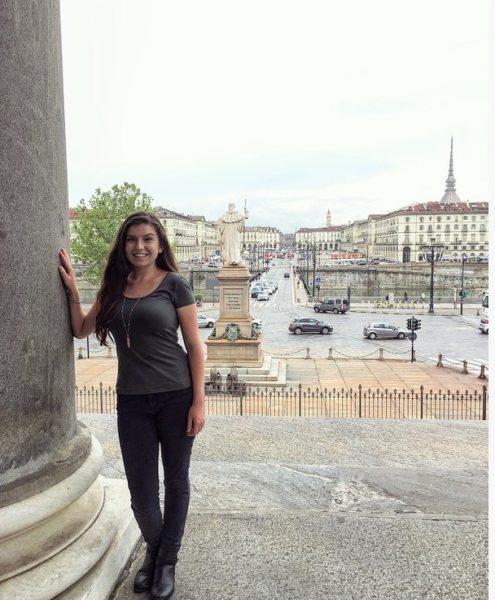
Ryan: What has been the process of getting involved with the Fulbright Program? When did you become aware that such a thing exists? What/who prompted you to apply?
Karen: I had heard of the Fulbright long before coming to college, but my main source of information and guiding light during this whole process was the ASPIRE Office at WVU, which provides students with information about national scholarships and helps them prepare competitive applications. It’s an incredible resource, and we’re very lucky to have an office like this at WVU. The number of students who have won national scholarships like Fulbright and Boren has increased tremendously since the ASPIRE Office was created in 2006. The ASPIRE Office helped me edit all of my Fulbright application essays and gave me the opportunity to meet with an internal panel of professors and university personnel who were familiar with the Central and Eastern European region to discuss my application.
Ryan: How did you learn that you’d earned a scholarship?
Karen: I was Facetiming my mom after class when I saw the email notification for Fulbright pop up at the top of my screen, and the email started with “Congratulations,” so I screamed. My mom thought for a second that something was actually wrong. It was an incredibly exciting and gratifying moment, because Fulbright is something I’ve been thinking about since beginning college, and it’s been my “Plan A” throughout my senior year while planning out my future endeavors.
I’m looking forward to spending a year living abroad and learning about a new culture while developing a clearer picture of my career aspirations.
Ryan: What might you have done if you hadn’t been selected?
Karen: If I didn’t get Fulbright, I was going to try to fulfill my year-long government service requirement for the Boren Scholarship by taking a job with the federal government after I graduated from WVU.
Ryan: What will you be doing with your Fulbright?
Karen: I will be teaching English at a secondary school in Ružomberok, a town in northern Slovakia. I will also be engaging with the local community through activities like an English Conversation Club. When I have school holidays, I hope to travel around a bit in Slovakia and the rest of Europe, and Jordan (Miller) and I will definitely meet up at some point!
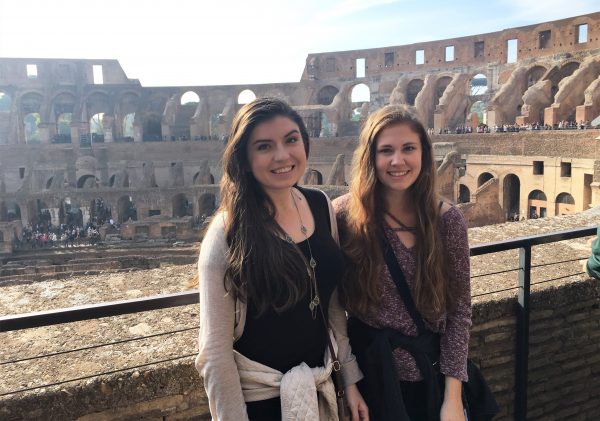
Ryan: I see from a previous Weelunk story that you’ve been engaged in Eastern European studies. Who are artists and thinkers that we should know more about? Is there a dish you’ve discovered that we should try?
Karen: Most of my hands-on experiences with Central and Eastern Europe have occurred in Poland, so I will mainly speak to the Polish arts and culinary scenes. One artist whose work I was able to see while I was in Krakow was Stanisław Wyspiański, who designed many of the stained-glass windows in the churches of Krakow along with being a playwright and poet. Andrzej Wajda is a director who has made a lot of important films about Polish history, including Katyń and Zimna Wojna (Cold War). Adam Michnik is an important thinker and political figure in Polish history because he played a key role in the Solidarity movement and helped with the transition from communism into democracy in Poland.
A lot of Polish foods like pierogi and kielbasa are pretty well known in the U.S., but while I studied in Poland, I found a few new favorites. One of these was placki ziemniaczane, which is potato pancakes, usually served with a mushroom sauce or a tomato sauce. I also really like naleśniki, which are crepes that can have sweet or savory fillings. Szarlotka, which is Polish apple pie, is also very good, and authentic, warm Polish pączki (donuts) are the best.
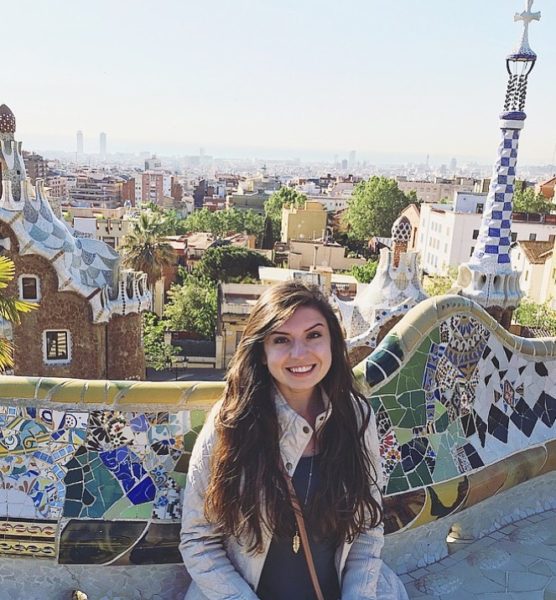
Ryan: From that Weelunk article again, I glean that you know some Polish, French and will soon be diving into Slovak. How many languages do you know? And how do you learn? Textbooks? Speaking partners from your travels? Duolingo?
Karen: I can understand and speak Polish pretty well, and I know some French. I mostly learned while I was immersed in those countries, but I also use Duolingo, watch YouTubers from Poland and France, watch movies on Netflix, speak with friends and family, and sometimes try to read articles online. It’s definitely hard to keep up a language when you’re not hearing it and speaking it every day. While I was in Poland and France, I had native speaker conversation partners, and that was one of the best ways to learn. I am hoping that my knowledge of Polish and its grammatical structure will help me with learning Slovak since the case system and many vocabulary words are similar.
Ryan: Do you have long-term plans? Is there a career you are aiming for? Do you hope to live in another country for most of your life?
Karen: I would like to eventually pursue a career in public diplomacy. I enjoy the work that I’ve done during my internships, and my experiences abroad and with teaching English as a second language have reinforced my desire to interact with people from all over the world in my career by fostering connectivity through cultural exchange. I will eventually go to graduate school or law school. I’m not sure about where I’ll live in the future, but I’ll probably be in Washington, D.C., at least for a little while, and then I’ll see where life takes me.
• Ryan Norman hails from a suburb of Cleveland and earned an English degree at Wheeling Jesuit University. He lives in East Wheeling where you might find him listening to Gustav Mahler or Keith Jarrett, reading David Foster Wallace or Dave Eggers, and thinking along with Martin Heidegger and Roger Scruton. Ryan is also a chorister at St. Matthew’s Episcopal Church and a member of The Prosers, a group that performs original poetry and prose at Towngate Theatre.


